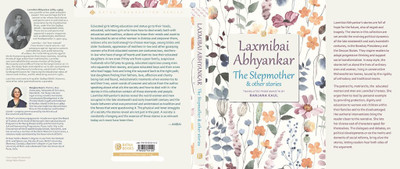The Stepmother and other stories(Hardcover, Laxmibai Abhyankar)
Quick Overview
Product Price Comparison
Laxmibai AbhyankarŌĆÖs stories are full of hope for the future, also of regret and tragedy. The stories in this collection are set amidst the evolving political dynamics of the late nineteenth and early twentieth centuries, in the Bombay Presidency and the Deccan States. They inspire readers to adopt progressive thinking and support social transformation. In easy style, the stories tell us about the lives of ordinary men and women, living in conservative Maharashtrian homes, bound by the rigidity of orthodoxy and traditional mores. The patriarchs, matriarchs, the educated women and men are LaxmibaiŌĆÖs heroes. She urges them to lead by personal example by providing protection, dignity and education to women and children within their families and to the disadvantaged. Her authorial interventions bring the reader closer to the narrative. She lets her diverse cast of characters speak for themselves. The dialogues and debates, on political developments or on the merits and demerits of social reforms, bring alive the stories, letting readers hear both sides of the argument.________________________________________Educated girls letting education and status go to their heads, educated, solicitous girls who know how to deal wisely both with education and tradition, widows who know their minds and want to be educated to serve other women in distress and empower them, widows who are bold enough to choose marriage, young brides and older husbands, oppression of mothers-in-law and other gossiping women who think educated women are contumacious, mothers-in-law who have change of hearts and learn to love their educated daughters-in-law even if they are from a poor family, suspicious husbands who fall prey to gossip, educated capricious young men who squander their money, and poor educated boys and their wives who lead happy lives and bring the wayward back to the right path, lost daughters finding their fathers, love, affection and charity being lost and found, melodramatic moments when women try to end their lives, warm words of concern and advice from the author speaking about what ails the society and how to deal with itŌĆöthe stories in this collection contain all these elements and people. Laxmibai AbhyankarŌĆÖs stories reveal the world women and men occupied in the late nineteenth and early twentieth century and the tussle between what was perceived and understood as tradition and the forces that were questioning it. The physical and inner struggles of a society the stories reveal are not just in the past. A society is constantly changing and the essence of these stories is as relevant today as it must have been then. AMBAI


